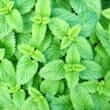Background
- Lemon balm (Melissa officinalis) is an herb with a lemon scent native to southern Europe. Historically, lemon balm has been said to possess sedative/tranquilizing, anti-gas, fever-reducing, antibacterial, spasmolytic, hypotensive (blood pressure lowering), memory-enhancing, menstrual-inducing, and thyroid-related effects and has been proposed by some to be an herbal cure-all. Laboratory data suggest that lemon balm may contain high concentrations of antioxidants.
- The German Commission E recommends lemon balm for nervous sleep disorders and functional gastrointestinal complaints. The European Scientific Cooperative on Phytotherapy (ESCOP) recommends its use for tenseness, restlessness, and irritability. Lemon balm has been placed on the U.S. Food and Drug Administration (FDA) GRAS (generally regarded as safe) list. No serious side effects have been reported, although there is limited research of long-term effects.
References
- Akhondzadeh S, Noroozian M, Mohammadi M, et al. Melissa officinalis extract in the treatment of patients with mild to moderate Alzheimer's disease: a double blind, randomised, placebo controlled trial. J Neurol Neurosurg Psychiatry 2003;74(7):863-866.
View Abstract - Allahverdiyev A, Duran N, Ozguven M, et al. Antiviral activity of the volatile oils of Melissa officinalis L. against Herpes simplex virus type-2. Phytomedicine 2004;11(7-8):657-661.
View Abstract - Ballard CG, O'Brien JT, Reichelt K, et al. Aromatherapy as a safe and effective treatment for the management of agitation in severe dementia: the results of a double-blind, placebo- controlled trial with Melissa. J Clin Psychiatry 2002;63(7):553-558.
View Abstract - Buchner KH, Hellings H, Huber M, et al. [Double blind study as evidence of the therapeutic effect of Melissengeist on psycho-vegetative syndromes]. Medizinische Klinik 1974;69(23):1032-1036.
View Abstract - Cerny AS, Schmid K. Tolerability and efficacy of valerian/lemon balm in healthy volunteers; a double-blind placebo-controlled, multicentre study. Fitoterapia 1999;70(3):221-228.
- Friedman M, Henika PR, Levin CE, et al. Antibacterial activities of plant essential oils and their components against Escherichia coli O157:H7 and Salmonella enterica in apple juice. J Agric Food Chem 2004;52(19):6042-6048.
View Abstract - Gazola R, Machado D, Ruggiero C, et al. Lippia alba, Melissa officinalis and Cymbopogon citratus: effects of the aqueous extracts on the isolated hearts of rats. Pharmacol Res 2004;50(5):477-480.
View Abstract - Ivanova D, Gerova D, Chervenkov T, et al. Polyphenols and antioxidant capacity of Bulgarian medicinal plants. J Ethnopharmacol 2005;96(1-2):145-150.
View Abstract - Kennedy DO, Little W, Scholey AB. Attenuation of laboratory-induced stress in humans after acute administration of Melissa officinalis (Lemon Balm). Psychosom Med 2004;66(4):607-613.
View Abstract - Lindahl O, Lindwall L. Double blind study of a valerian preparation. Pharmacol Biochem Behav 1989;32(4):1065-1066.
View Abstract - Madisch A, Holtmann G, Mayr G, et al. Treatment of functional dyspepsia with a herbal preparation. A double-blind, randomized, placebo-controlled, multicenter trial. Digestion 2004;69(1):45-52.
View Abstract - Madisch A, Melderis H, Mayr G, et al. [A plant extract and its modified preparation in functional dyspepsia. Results of a double-blind placebo controlled comparative study]. Z Gastroenterol 2001;39(7):511-517.
View Abstract - Salah SM, Jager AK. Screening of traditionally used Lebanese herbs for neurological activities. J Ethnopharmacol 2005;97(1):145-149.
View Abstract - Vogt M, Tausch I, Wölbling RH, et al. [Melissa extract in herpes simplex: a double-blind placebo-controlled study]. Der Allgemeinarzt 1991;13:832-841.
- Widy-Tyszkiewicz E, Schminda R. A randomized double blind study of sedative effects of phytotherapeutic containing valerian, hops, balm and motherwort versus placebo. Herb Polon 1997;2:154-159.







